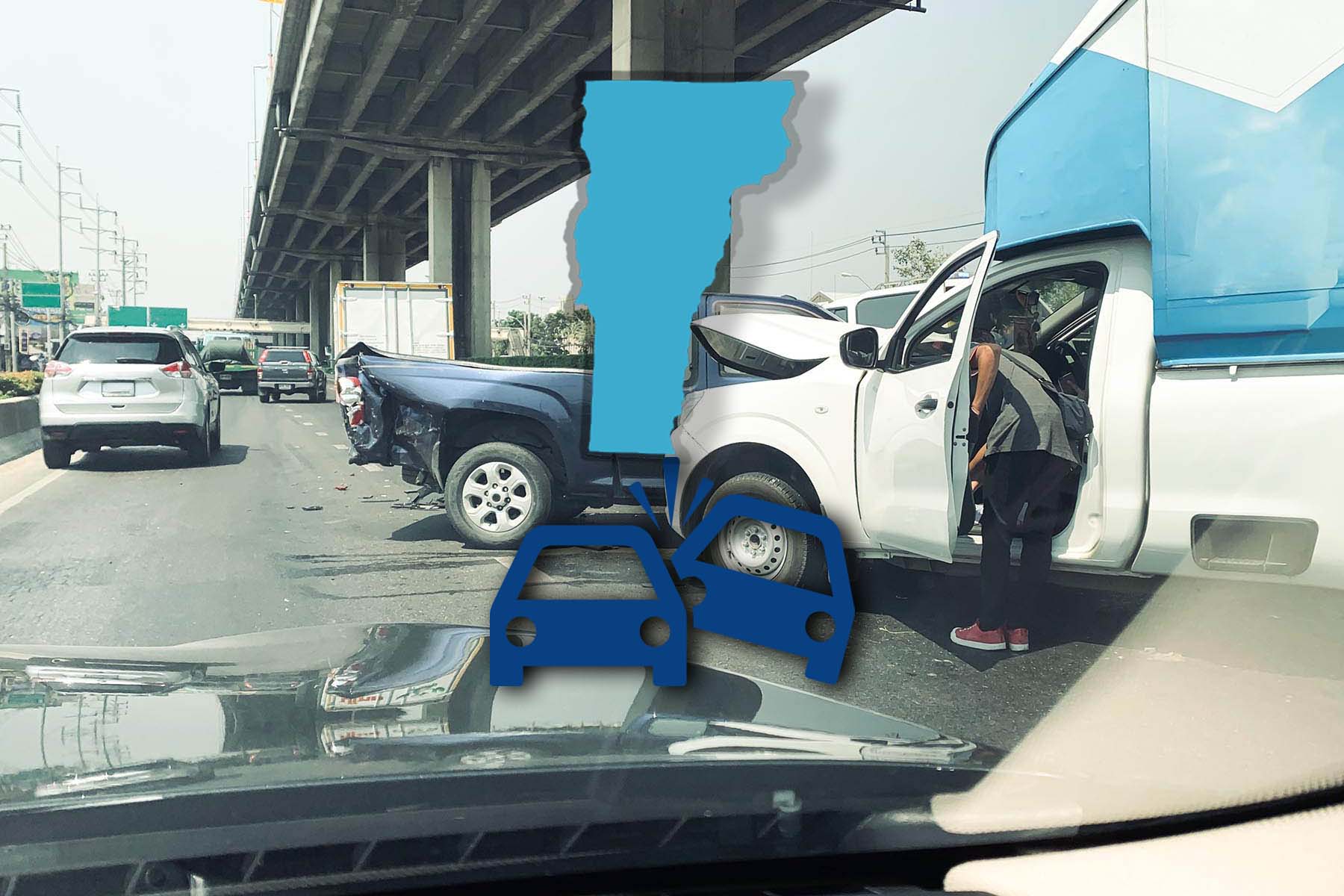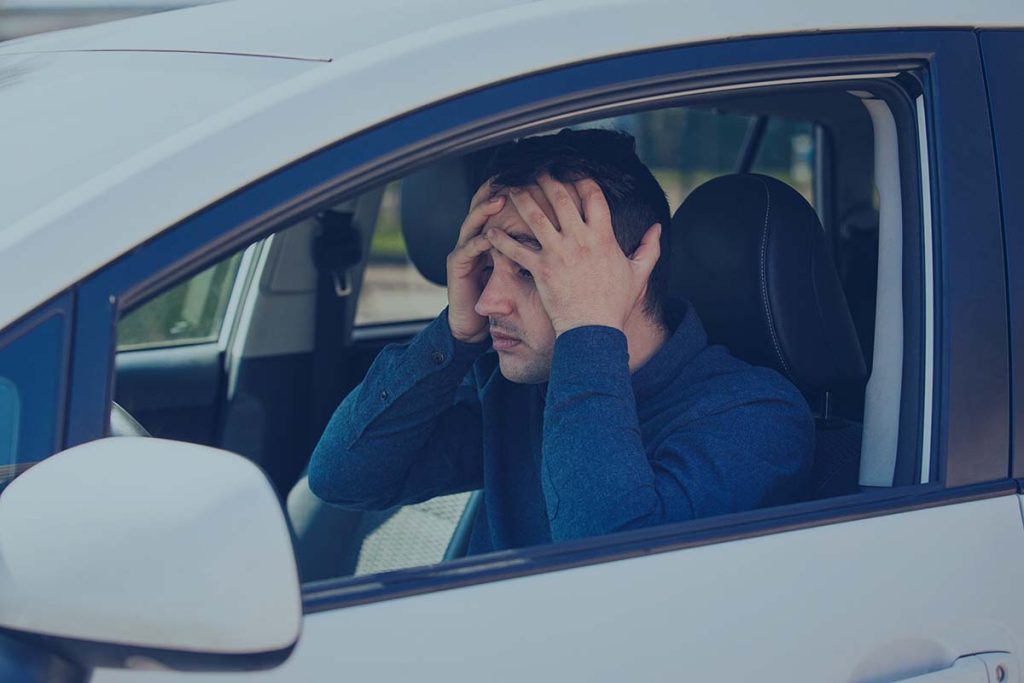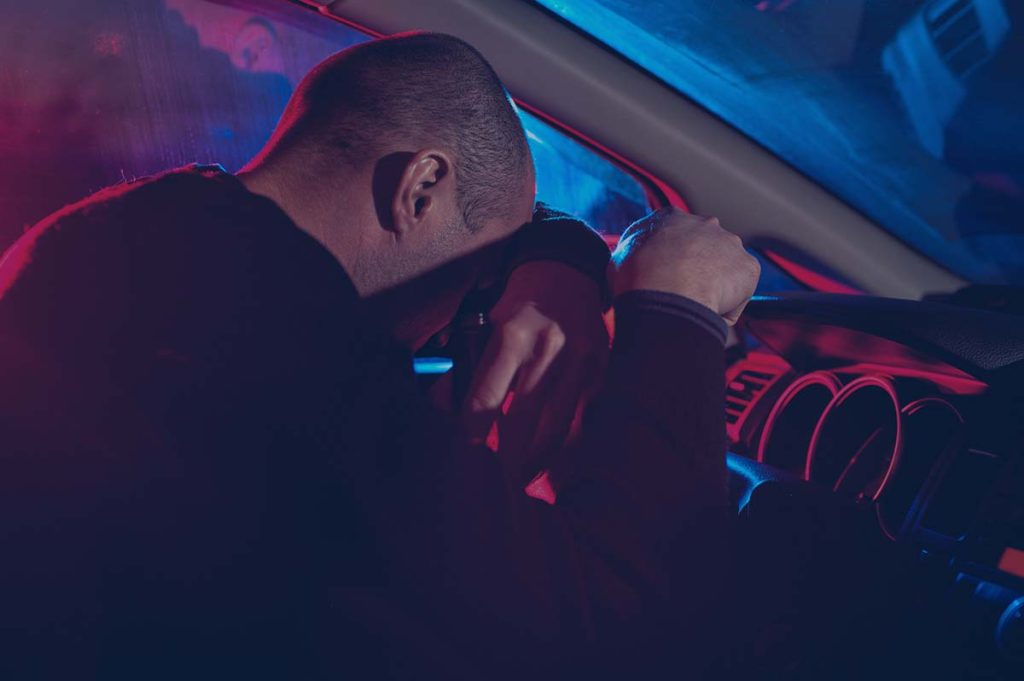
Vermont Hit and Run Laws: What happens if someone leaves the scene of an accident?
- Vermont Hit and Run Laws: What happens if someone leaves the scene of an accident?
- Vermont hit and run laws explained: Leaving the scene of an accident without fulfilling legal obligations
- Is leaving the scene of an accident a misdemeanor in Vermont?
- Is leaving the scene of an accident a felony in Vermont?
- What is the penalty for leaving the scene of an accident in Vermont?
- How is fault determined in Vermont?
- What is the statute of limitations on car accidents in Vermont?
- Vermont hit and run laws: Possible defenses
Leaving the scene of an accident in Vermont without fulfilling statutory obligations may result in felony or misdemeanor charges. In addition, the penalty could be anywhere from two to fifteen years in prison.
Quick take:
Leaving the scene of an accident in Vermont
- You have 72 hours to report a reportable accident.
- You must report any accident that results in death, injury, or property damage above $3000.
- Vermont is a fault state.
- The victim may take civil action.
- Do not admit fault at the scene of an accident.
- Do not leave the scene without fulfilling statutory obligations.
- You may leave the scene if you have a valid reason to fear for your safety.
References
Vermont hit and run laws explained: Leaving the scene of an accident without fulfilling legal obligations

Under state law, whenever a driver is involved in a traffic collision, that individual must immediately stop the vehicle without interfering with traffic more than is necessary. Consequently, if the vehicle is a hazard to other motorists, you must move the vehicle to a safe spot near the scene. However, if you were transporting hazardous materials or if someone suffers death or serious injury. Section 1102 – “Removal of Stopped Vehicles” states that you should not move the vehicle until investigators complete their work.
What to do after an accident in Vermont
An accident becomes a crime if you leave the scene without fulfilling legal obligations listed in section 1128, “Crashes; Duty to Stop.” The subsection requires all drivers in the state to do the following:
- Immediately stop your vehicle without interfering with traffic more than is necessary.
- Do not move the vehicle if anyone suffers death or serious injury.
- Give your name, residence, and license number to the struck person or property owner.
Does Vermont have good Samaritan laws?
Title 12 section 519. “Emergency Medical Care” is Vermont’s good Samaritan law. Under the statute, you have a legal obligation to render reasonable assistance to anyone who may need it. The statute reads, quote:
“(a) A person who knows that another is exposed to grave physical harm shall, to the extent that the same can be rendered without danger or peril to himself or without interference with important duties owed to others, give reasonable assistance to the exposed person unless that assistance or care is being provided by others. (b) A person who provides reasonable assistance in compliance with subsection (a) of this section shall not be liable in civil damages unless his acts constitute gross negligence or unless he will receive or expects to receive remuneration. Nothing contained in this subsection shall alter existing law with respect to tort liability of a practitioner of the healing arts for acts committed in the ordinary course of his practice.”
Failure to comply with subsection a of the statute is punishable by a maximum fine of $100. In addition, if you were responsible for the accident or fled the scene, the court may impose punitive damages.
In short, to avoid criminal charges after an accident in Vermont, you should:
- Stop your vehicle and remain at the scene until law enforcement officers arrive.
- Do not engage in road rage or harm the other driver (which may lead to other charges, including assault).
- Render reasonable assistance to anyone who needs it.
- Do not admit fault.
- If the accident results in death or serious injury, contact an attorney immediately and do not say more than you need to.
- Gather evidence, including witness testimonies and dashcam footage if available.
- If the victim requests it or if it is apparent the individual requires immediate medical help, you may transport the person to a physician or hospital.
- Make sure that you file a police report within the set period (see below).
Is leaving the scene of an accident a misdemeanor in Vermont?

Under state law, any crime punishable by less than two years in jail is a misdemeanor. Any crime whose penalty is above two years is a felony.
Consequently, leaving the scene of an accident that results in property damage is a misdemeanor under section 1128. The statute reads in part, quote:
“The operator of a motor vehicle who has caused or is involved in a crash resulting in injury to any person other than the operator, or in damage to any property other than the vehicle then under his or her control, shall immediately stop and render any assistance reasonably necessary”
If you violate this section, the penalty is a maximum fine of $2000 and not more than two years in jail.
What is a reportable accident in Vermont?
According to Title 23 Section 1129, you have a legal obligation to report any accident that results in death, serious injury, or property damage above $3000 within 72 hours.
We recommend notifying law enforcement using the quickest means of communication.
What happens if you hit an unattended vehicle in Vermont?
If the accident is reportable, you have a legal obligation to locate the owner and exchange information. If you cannot find the owner, then leave a note containing your name, address, vehicle registration, and contacts on a conspicuous section of the struck vehicle.
Note. If property damage is above $3000, you must notify law enforcement and file a report.
Is leaving the scene of an accident a felony in Vermont?

Yes. Leaving the scene of an accident involving death or serious injury is a felony in Vermont. Section 1128 (b) states that the penalty for leaving the scene of an accident involving serious bodily injury is a maximum of five years in prison and a fine, not more than $3000.
Serious bodily injury, under state law, refers to any injury that puts the victim at significant risk of death, disfigurement, or paralysis. Examples include organ damage, loss of function, facial disfigurement, and limb loss.
DUI hit and run
Under Vermont Stat. Ann 23 section 1201 and 1210, if a drunk or intoxicated driver causes injury, the penalty is up to 15 years in prison and a $5000 fine for serious bodily injury. In addition, if the victim dies, the penalty is a $10000 fine and up to 15 years in prison.
Remember, each victim constitutes a separate offense.
What is the penalty for leaving the scene of an accident in Vermont?
- Leaving the scene of an accident involving property damage. Misdemeanor, punishable by up to 2 years in jail and a maximum fine of $3000.
- Hit and run involving serious bodily injury. Felony, punishable by a maximum sentence of 5 years and a $3000 fine.
- Leaving the scene of an accident involving death. Felony, is punishable by not less than one year in prison and a maximum of 15 years plus a $3000 fine.
- DUI hit and run involving death. Felony, punishable by up to 15 years in prison and a $3000 fine.
Civil and administrative penalties
After an accident or hit and run in Vermont, the victim may file a civil action to recover lost wages, property damage, pain and suffering, or other damages. Because of that, it is in your best interest that the police arrest the fleeing driver.
If they do not arrest the fleeing driver, you may file a claim with your insurer if you have a cover.
That said. What you should do immediately after an accident is:
- Call the police.
- If the driver flees, write down useful details, including the car make, driver description, vehicle color, registration, and damage done to the vehicle.
- Do not admit fault or comment about your health.
- Seek medical attention
- File a police report within the set period.
- Do not threaten or harm the other driver.
- Call your insurer.
- Remain at the scene until the police arrive.
How is fault determined in Vermont?

Vermont is a “fault” state. Consequently, the at-fault party pays damages to the victim. However, the state’s “comparative negligence rule” diminishes the amount you may recover based on your share of responsibility for the accident.
What you need to remember is section 1036. “Comparative negligence” reads in part, quote:
“Contributory negligence shall not bar recovery in an action by any plaintiff, or his or her legal representative, to recover damages for negligence resulting in death, personal injury, or property damage, if the negligence was not greater than the causal total negligence of the defendant or defendants, but the damage shall be diminished by general verdict in proportion to the amount of negligence attributed to the plaintiff.”
What is the statute of limitations on car accidents in Vermont?
Under state law, you must file a lawsuit within a set period. Failure may result in dismissal.
- You have three years to file a personal injury claim.
- Six years from the date of the accident to file a property damage claim.
- If the victim dies, survivors have two years to file a claim -starting from the date of death.
Vermont hit and run laws: Possible defenses
Commonly used defenses in the state include:
- Leaving the scene was involuntary (the driver was incapacitated).
- You feared for your safety.
- Mistaken identity.
- You were unaware of your involvement in a traffic collision.
Other Vermont Laws